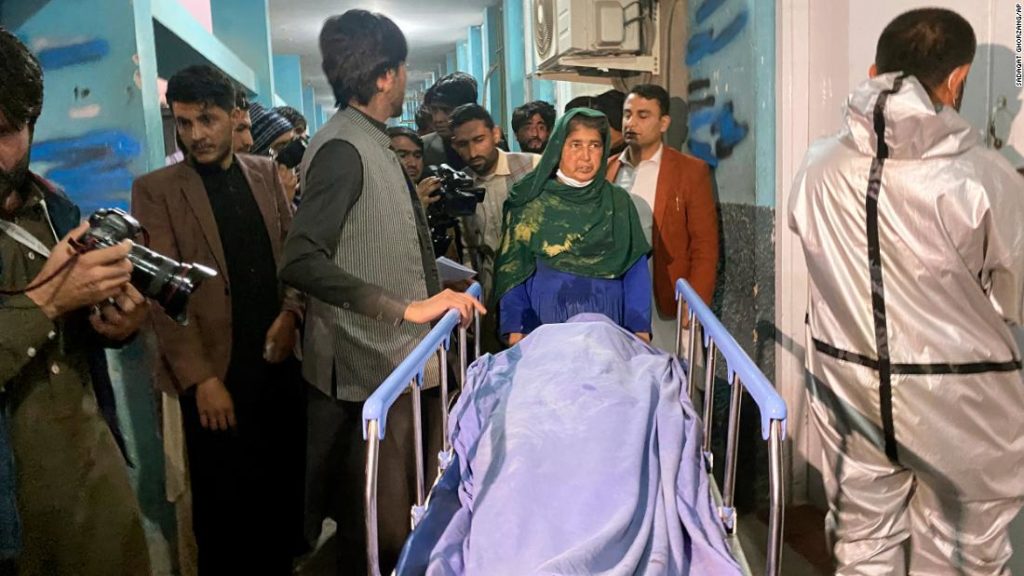Zalmai Latifi, head of local broadcaster Enikas TV, said the three women were recent high school graduates aged between 18 and 20 who worked in the station’s dubbing department.
Government sources said the women were killed on their way home from work, and witnesses said gunmen shot the women in the head before fleeing. A fourth woman was injured, and a hospital spokesman said she had been admitted to hospital and was fighting for her life.
Provincial police chief Juma Gul Hemat said that the suspected lead attacker had been arrested and that he was connected to the insurgent Taliban.
A Taliban spokesman denied the group had any involvement in the attack.
A wave of shootings and small bombs attached to vehicles in Afghanistan have targeted journalists, civil society workers and mid-level government employees in recent months, as the government and Taliban negotiators try to broker a peace deal and the United States withdraws some of its troops.
The director of Enikass-TV, Zalmai Latifi, was kidnapped for ransom in 2018.
In November 2020, two journalists — Elyas Dayee at Radio Azadi, and former TOLO news presenter Yama Siawash — were killed in two separate bomb blasts. Also in November, gunmen stormed Kabul University, killing over a dozen people, including students.
In December 2020, female journalist Malalai Maiwand, who also worked for Enikass-TV, was killed alongside her driver in Jalalabad on her way to the office. Her mother, who was an activist for women’s rights, was also killed five years earlier by unknown gunmen.
Enikas TV’s Latifi said the channel, which was set up in 2018, had employed 10 women but four had now been killed.
The Afghan government and some foreign powers have blamed the attacks largely on the Taliban, which denies involvement. The Islamic State group also has a presence in the eastern Afghan province of Nangahar, of which Jalalabad is the capital.
“The targeted killing of journalists could cause a state of fear in the journalistic community, and this could lead to self-censorship, abandonment of media activities, and even leaving the country,” said Mujib Khalwatgar, head of Afghan media advocacy group Nai.
The Taliban and Afghan government are carrying out peace talks in Doha, though progress has slowed while US President Joe Biden’s administration is reviewing its plans for the peace process and the US troop withdrawal.
The US Embassy in Kabul called the killings “devastating news,” and extended condolences to the families of the three women.
You may also like
-
Afghanistan: Civilian casualties hit record high amid US withdrawal, UN says
-
How Taiwan is trying to defend against a cyber ‘World War III’
-
Pandemic travel news this week: Quarantine escapes and airplane disguises
-
Why would anyone trust Brexit Britain again?
-
Black fungus: A second crisis is killing survivors of India’s worst Covid wave

